
Christine Farr, a permaculture practitioner and researcher, who also writes for AgronoMag, says that while the reindeer is often associated with Christmas
and the image of Santa Claus and his sleigh, the reindeer is culturally and practically far more important. “Reindeer farming has become something that various farmers from all around the world are finding to be appealing because growing reindeer offers the opportunity to capitalise on different aspects,” she writes.
FACTS ABOUT REINDEER
Farr writes that the reindeer were among the first domesticated animals, with large herds of domestic reindeer still being found today in Finland, Norway, Sweden, and Siberia.
Reindeer are considered medium-sized deer, with the average male reaching 180cm to 214cm in length. The adult male reindeer tend to reach an average weight of between 92kg and 210kg (depending on the sub-species), says Farr.
However, some adult males have been recorded at above 300kg. Mature adult female reindeer are smaller than their male counterparts, but unlike other deer species, says Farr, the female reindeer also have horns. The reindeer’s fur colour differs depending on area and sub-species.
“The coat is composed of two layers of hair, a dense, woolly layer and an upper layer with long, rough, strong hairs.
“The upper layer hairs are bare in sections and filled with air, specially adapted to the low temperatures or for the moments when the reindeer cross the watercourses.
This story is from the {{IssueName}} edition of {{MagazineName}}.
Start your 7-day Magzter GOLD free trial to access thousands of curated premium stories, and 9,000+ magazines and newspapers.
Already a subscriber ? Sign In
This story is from the {{IssueName}} edition of {{MagazineName}}.
Start your 7-day Magzter GOLD free trial to access thousands of curated premium stories, and 9,000+ magazines and newspapers.
Already a subscriber? Sign In

Agripreneur wins top award for butternut coffee
Bloemfontein-based agripreneur Chantelle de Bruyn has achieved global recognition.
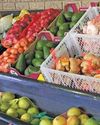
Final fresh produce inquiry pins low level of transformation on farming environment
The Competition Commission released its final report on the Fresh Produce Market Inquiry in mid-January, maintaining that transformation in the industry was being impeded by a lack of support for emerging farmers.
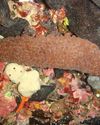
Illegal fishing in Australia reveals market gap for farmed sea cucumber
Illegal fishing practices in Australia have revealed a large market opportunity for sea cucumber farming.

An introduction to the Ford Ranger Tremor
In December 2024, the CAR magazine team received the Ford Ranger Tremor to accompany them through the festive season and into the new year. Oliver Keohane looks at what the Tremor is all about.

A farmer's experience with bush encroachment
Farmer David Addenbrooke has worked in the Zimbabwean beef industry for around four decades. Here, he relates his experience with bush encroachment and offers farmers some advice on battling this scourge.

Good rains boost SA's summer grain crop prospects
This week, Absa AgriBusiness analyses several market dynamics and shares its expectations for local grain and oilseed prices over the coming months.
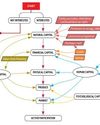
A self-help tool for getting young people engaged in agriculture
The active engagement of the youth in agriculture is pivotal to the sustainability and growth of the sector. Empowering them with the necessary support is key to nurturing future farmers who are equipped to overcome future challenges like the effects of climate change.Dr Primrose Madende, researcher at the Department of Agricultural Economics at the University of the Free State
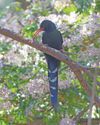
Rallying to the cackle of this raucous bird
The gregarious and territorial Green Wood-hoopoe, also known as the Red-billed Wood-hoopoe, is extremely vocal and is often heard before it is seen. And for very good reason,

SA coffee lovers can expect price increase
South African coffee prices are expected to spike sharply in the foreseeable future because of failed crops in the country’s main importing countries: Brazil and Vietnam.
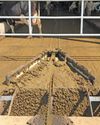
Paving the way for a greener dairy industry
The dairy industry is often criticised for its environmental impact, but a new innovation called DESTiny aims to empower farmers to take control of their carbon footprints. Riana Reinecke, the tool's developer, explained to Glenneis Kriel how it works and how farmers can benefit from it.